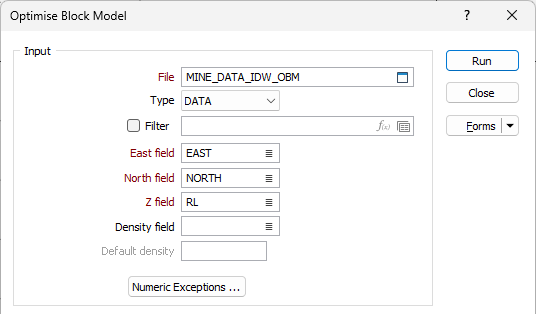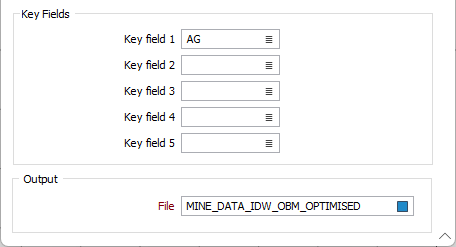Optimise
![]()
Notes
- During the optimisation process, numeric values in the output file are re-calculated using a volume weighted average and character fields are assigned a value which is the most commonly occurring (or the last encountered) value for the sub-blocks being combined into larger cells.
- Blocks will only be optimised if the key values match for all of the blocks.
- The optimisation process cannot produce irregular (L-shaped or T-shaped) blocks.
- If the input model does not have sub-blocks, then the output model will be exactly the same as the input model.
File
Specify a block model file as the input file.

Easting, Northing and Z fields
Specify Easting, Northing and Z coordinate fields in the input file.
Density field and Default Density
Optionally specify an Density field and a default value.
Numeric Exceptions
(Optionally) Use the Numeric Exceptions group to control the way that non-numeric values are handled. Non-numeric values include characters, blanks, and values preceded by a less than sign (<).
Key Fields
Specify the key fields in the input file.

Key fields in the input file are used to determine which sub-blocks will be optimised, given that they come from the same parent cell. Only those sub-blocks which belong to the same parent cell and which share the same key field values can be optimised.
A key field might identify which blocks sit within the same wireframe, or which blocks are situated above or below a DTM surface.
Output file
Double-click (or click on the Select icon) to select the name of the output file.
Forms
Click the Forms button to select and open a saved form set, or if a form set has been loaded, save the current form set.
Run
Click the Run button to run the Optimise process using the parameters you have defined.